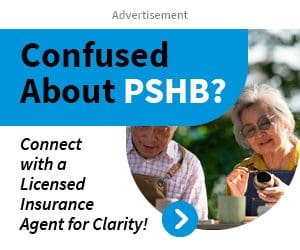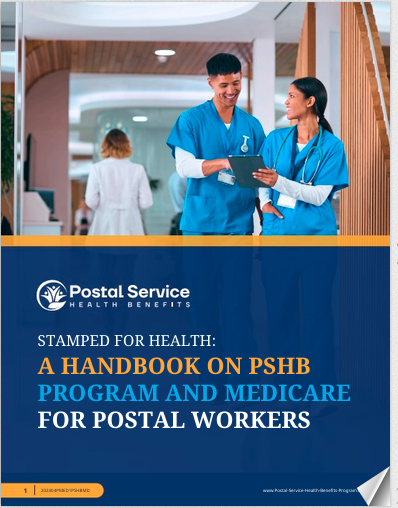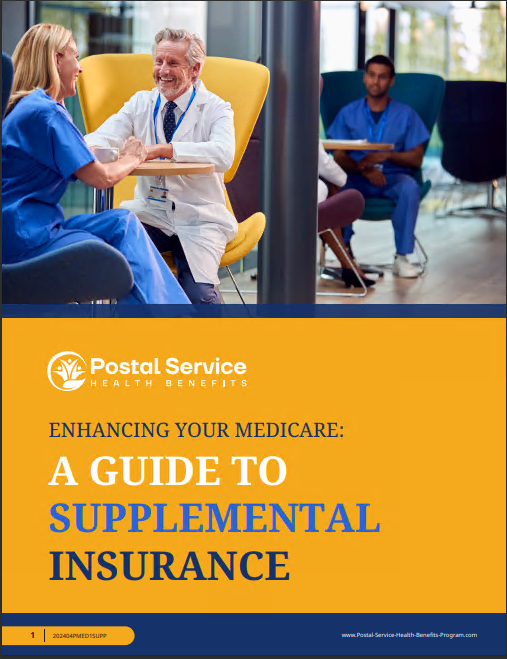Key Takeaways:
- New rules under the Postal Service Health Benefits (PSHB) Program will require eligible USPS retirees to enroll in Medicare Part B starting January 2025.
- Understanding the impact of these changes is essential for USPS retirees to make informed decisions about their healthcare coverage.
New Rules for USPS Retirees: Understanding the Medicare Part B Requirement Under PSHB
The introduction of the Postal Service Health Benefits (PSHB) Program marks a significant shift in healthcare coverage for United States Postal Service (USPS) retirees. As part of broader reforms under the Postal Service Reform Act of 2022, one of the most crucial changes is the requirement for eligible retirees to enroll in Medicare Part B. This mandate, set to take effect on January 1, 2025, has raised many questions among USPS retirees and their families about how these new rules will affect their healthcare coverage and costs. This article aims to clarify the details of the Medicare Part B requirement, its implications, and how retirees can best navigate these changes.
What Is the PSHB Program?
The Postal Service Health Benefits (PSHB) Program is a new health benefits program established specifically for USPS employees, retirees, and their eligible family members. It was created as part of the Postal Service Reform Act of 2022, which aimed to address financial challenges faced by the USPS, including the rising costs of retiree health benefits. The PSHB will replace the Federal Employees Health Benefits (FEHB) Program for postal workers and retirees, offering a separate pool of health plans starting in 2025.
Unlike the FEHB, where USPS retirees had the option to enroll in Medicare Part B, the PSHB mandates that eligible retirees who turn 65 on or after January 1, 2025, must enroll in Medicare Part B to retain their PSHB coverage. This requirement is intended to integrate Medicare benefits more effectively with the PSHB plans, potentially reducing overall healthcare costs for both the USPS and its retirees.
Why Is Medicare Part B Enrollment Now Required?
Medicare Part B covers outpatient care, including doctor visits, preventive services, and certain home health services. Historically, USPS retirees covered under the FEHB Program could choose whether or not to enroll in Medicare Part B when they became eligible at age 65. However, many opted out, primarily due to the additional premium costs associated with Part B.
The Postal Service Reform Act introduced the Medicare Part B requirement to ensure that Medicare becomes the primary payer for these services, with PSHB plans serving as secondary coverage. This change is expected to lower the USPS’s health benefits liabilities by shifting more healthcare costs to Medicare, which is federally funded. For retirees, this could mean better coordination of benefits and potentially lower out-of-pocket costs, but it also introduces the additional expense of Medicare Part B premiums.
Who Is Affected by This Change?
The new requirement to enroll in Medicare Part B will affect USPS retirees who turn 65 on or after January 1, 2025, as well as their eligible family members. Retirees who are already 65 or older before this date and are not enrolled in Medicare Part B will not be forced to enroll but will have the option to do so. However, for those reaching Medicare eligibility after January 2025, enrollment in Part B will be a prerequisite for retaining PSHB coverage.
Additionally, certain groups of USPS employees and retirees may be exempt from this requirement, including those who are eligible for other health benefits coverage, such as military health benefits under TRICARE. It is crucial for affected individuals to verify their specific situation and understand whether they fall under the mandate or an exemption.
How Will This Impact Retirees’ Health Coverage?
The requirement to enroll in Medicare Part B as part of the PSHB program will change how healthcare costs are managed for many USPS retirees. With Medicare as the primary payer, retirees may see lower out-of-pocket costs for services covered by both Medicare and PSHB. For example, once enrolled in Medicare Part B, many preventive services and outpatient care will be covered at little to no additional cost beyond the Part B premium.
However, retirees should also consider the implications of paying the Medicare Part B premium, which in 2024 is $174.70 per month for most beneficiaries, with higher premiums for those with higher incomes. This cost is on top of any premiums they may pay for their PSHB plan. While the coordination of benefits between Medicare and PSHB could lead to lower overall healthcare costs, the additional premium could represent a significant new expense for some retirees.
Retirees currently enrolled in the FEHB program who decide not to enroll in Medicare Part B by the time they turn 65 (post-January 2025) risk losing their PSHB coverage, which could leave them without adequate health insurance.
What Steps Should USPS Retirees Take?
USPS retirees should begin preparing for these changes well before they reach Medicare eligibility. Here are several steps to consider:
- Review Health Coverage Options: Retirees should evaluate their current health coverage and how it will integrate with Medicare Part B under the PSHB program. This includes understanding what is covered by Medicare and how it coordinates with PSHB benefits.
- Calculate Costs: It’s essential to consider the cost of Medicare Part B premiums in the context of overall healthcare expenses. Retirees should assess whether the benefits of enrolling in Medicare Part B outweigh the additional costs.
- Understand Enrollment Periods: Medicare has specific enrollment periods, and missing these can result in penalties or delays in coverage. Retirees should familiarize themselves with the Initial Enrollment Period (IEP) and General Enrollment Period (GEP) to ensure they enroll on time.
- Consult with a Licensed Insurance Agent: Given the complexity of these changes, retirees may benefit from consulting a licensed insurance agent who can provide personalized advice based on their individual circumstances.
What Happens If You Don’t Enroll in Medicare Part B?
Failing to enroll in Medicare Part B when required could have significant consequences for USPS retirees. Those who do not enroll by the time they are eligible (post-January 2025) will lose their PSHB coverage, potentially leaving them without adequate health insurance. Moreover, if retirees decide to enroll in Medicare Part B later, they may face a late enrollment penalty, which increases the monthly premium by 10% for each 12-month period they were eligible but did not enroll.
This penalty is lifelong and can add up to substantial additional costs over time. Given the serious implications of missing the Medicare Part B enrollment deadline, it is crucial for retirees to be proactive and ensure they meet all necessary requirements to retain their healthcare coverage.
Key Dates to Remember
Understanding the timeline of these changes is critical for USPS retirees:
- January 1, 2025: This is the date when the PSHB program officially starts, and the Medicare Part B requirement for new retirees takes effect.
- Medicare Initial Enrollment Period (IEP): Typically starts three months before the month you turn 65 and ends three months after, offering a seven-month window to enroll in Medicare Part B.
- General Enrollment Period (GEP): Runs from January 1 to March 31 each year, allowing those who missed their IEP to enroll, although coverage does not start until July 1, and penalties may apply.
Preparing for the Transition
The upcoming changes to USPS retiree health benefits under the PSHB program represent a significant shift in how healthcare coverage is managed. As the deadline approaches, it is vital for retirees and their families to stay informed, review their options, and take proactive steps to ensure they are prepared for the new requirements.
Retirees should regularly check for updates from the USPS and the Office of Personnel Management (OPM) to stay abreast of any additional guidance or clarifications regarding the transition to PSHB and the Medicare Part B enrollment requirement.
Navigating the Medicare Part B Requirement
Successfully navigating the new Medicare Part B requirement under the PSHB program will require careful planning and an understanding of how these changes affect your healthcare coverage. By taking the time to assess your options, calculate costs, and prepare for the transition, you can ensure that you maintain the coverage you need without facing unexpected penalties or gaps in your healthcare benefits.
Contact Information:
Email: [email protected]
Phone: 4155557890







